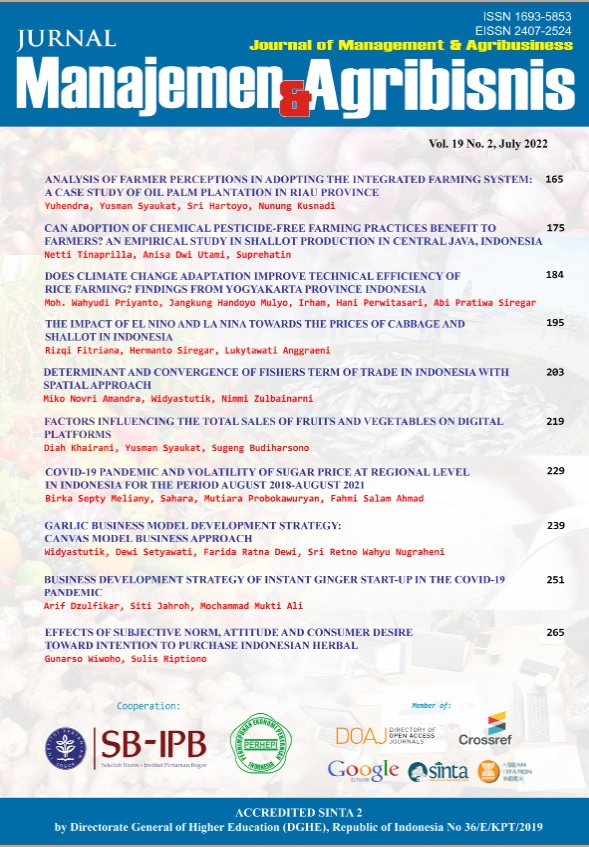The Influence of Superior Leadership Competency on The Achievement of Key Performance Indicators of SOE Banks
Abstract
This research examines the effect of superior leadership competence in achieving key performance indicator (KPI) Bank XYZ as a State Own Enterprise (SOE). The number of respondents was 318, and the data was processed using Structural Equitation Modeling (SEM) Lisrel 8.80 model 1. The results supported the hypothesis that (1) leading business competence affects superior leadership, and it is acceptable; (2) competence of leading people and organizations influencing superior leadership is acceptable; and (3) superior leadership influences achievement of KPI, which is acceptable. In contrast, superior leadership is determined by transformational and transactional leadership variables. The dimension of transformational leadership that received the highest of scores 5 (strongly agree) from employee was inspirational motivation. Leaders motivate and inspire employees by speaking optimistically about the company's future, speaking enthusiastically about what the company needs to achieve, articulating an achievable vision for the future, as well as convincing and expressing confidence in the goal.
Keywords: leading business competence, leading people and organization competence, superior leadership, transformational leadership, transactional leadership
Authors
Authors who publish with this journal agree to the following terms:
- Authors retain copyright and grant the journal right of first publication with the work simultaneously licensed under a Creative Commons Attribution License that allows others to share the work with an acknowledgement of the work's authorship and initial publication in this journal.
- Authors are able to enter into separate, additional contractual arrangements for the non-exclusive distribution of the journal's published version of the work (e.g., post it to an institutional repository or publish it in a book), with an acknowledgement of its initial publication in this journal.
- Authors are permitted and encouraged to post their work online (e.g., in institutional repositories or on their website) prior to and during the submission process, as it can lead to productive exchanges, as well as earlier and greater citation of published work (See The Effect of Open Access).

